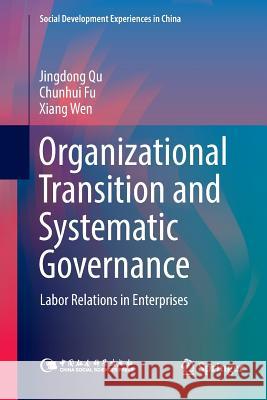Organizational Transition and Systematic Governance: Labor Relations in Enterprises » książka
topmenu
Organizational Transition and Systematic Governance: Labor Relations in Enterprises
ISBN-13: 9789811356254 / Angielski / Miękka / 2019 / 202 str.
Kategorie BISAC:
Wydawca:
Springer
Seria wydawnicza:
Język:
Angielski
ISBN-13:
9789811356254
Rok wydania:
2019
Wydanie:
Softcover Repri
Ilość stron:
202
Waga:
0.30 kg
Wymiary:
23.39 x 15.6 x 1.14
Oprawa:
Miękka
Wolumenów:
01
Dodatkowe informacje:
Wydanie ilustrowane











